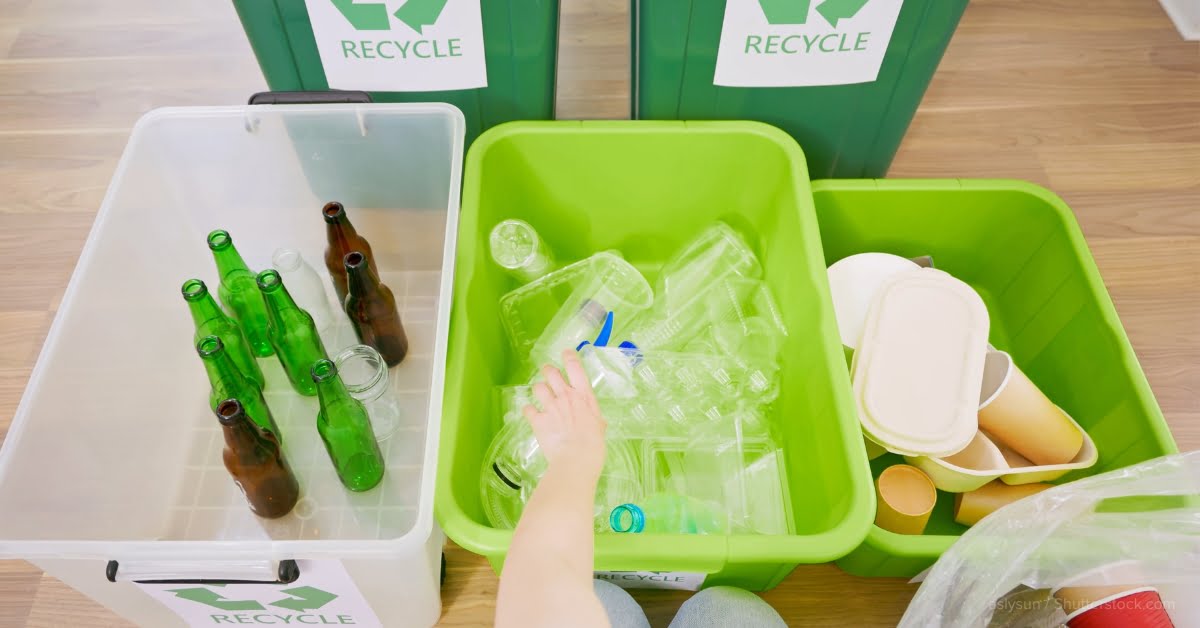
Published
June 27, 2023
Tags:
Actively working towards waste reduction for sustainability can help mitigate its harmful effects on the environment.
When it comes to waste management, people generally know the basics: separating general waste from recyclables and using the appropriate bins. Even so, only a few people stop to think about where their waste is going and its broader environmental impact.
That said, understanding the importance of waste reduction becomes crucial in this oversight. Actively working towards waste reduction for sustainability can help mitigate its harmful effects on the environment. This can be as simple as opting for simple, eco-friendly means like biodegradable bags or conserving landfill space and resources.
What is sustainable waste reduction?

As population growth and industrialization accelerate, countries worldwide are facing a critical waste crisis. This has reached alarming levels, posing significant threats to ecosystems and the environment. If left unchecked, some of its consequences include resource depletion, pollution, and climate change – all of which are already affecting the world.
Sustainable waste management advances the responsible handling of different types of waste, ensuring that it doesn’t harm the environment, human health, or future generations. Moreover, this approach involves activities encompassing production, organizing, and implementing effective waste management practices.
The environmental challenge of big corporations

Increased social responsibility and environmental awareness have prompted many movements and individuals to contribute to a healthier world. But although some individuals are making deliberate efforts to reduce waste and adopt eco-friendly practices, big corporations face even more unique challenges. This is due to the scale of their business operations and the substantial waste they produce on a regular basis.
Encouraging big corporations to utilize sustainable practices often require multifaceted approaches, and one crucial aspect is the use of disposable materials and proper bags. Using eco-friendly materials facilitate effective recycling, reduces pollution, and promotes responsible waste disposal. At the same time, this will help minimize the ecological footprint.
Adopting such operations demonstrate a commitment to sustainability. This will also help inspire other corporations and individuals to follow suit, contributing to the collective efforts toward a more environmentally conscious society.
Benefits of using sustainable bags and disposal materials

Choosing reusable and eco-friendly options like biodegradable packaging for business plays a pivotal role in waste reduction for sustainability. Eco bags or biodegradable bags made of corn starch prove to be excellent alternative packaging to plastic, one which otherwise accounts for 27 million tons in waste alone.
Advancing responsible production and conscious consumption allows corporations to make a tangible difference in reducing waste.
That said, here are the benefits of using sustainable bags and disposal materials.
Cost savings

Opting for eco-friendly bags in corporate waste reduction strategies helps lead to long-term cost savings. Reusable bags eliminate the need for single-use plastic bags, significantly reducing expenses linked with purchasing new bags for products. Besides this, using compostable materials may also result in reduced waste disposal costs by optimizing recycling and diverting waste from landfills.
Reduced environmental impact

One major problem of big corporations is their carbon footprint. Generating tons of waste due to large-scale business operations only exacerbate harm to the environment. The contrary happens by opting for sustainable or biodegradable bags, as this can reduce the environmental footprint by a large mile.
Since biodegradable bags break down over time, this also implies a large reduction in waste volume. This consequently means less waste ending up in landfills, resulting in lesser overall waste to manage.
Choosing proper bags minimizes plastic waste and its detrimental effects on ecosystems and all forms of life.
Innovation and differentiation

Embracing sustainable practices via the use of eco-friendly bags encourages differentiation and innovation within the corporate sector. Companies that proactively adopt eco-friendly solutions and techniques can position themselves as industry leaders spearheading change, and inspiring others to follow their tracks. This also helps companies leverage their commitment to attract environmentally conscious investors, partners, and customers.
Compliance with regulations

Many jurisdictions have implemented waste management targets and regulations to combat the degradation of the environment. Utilizing proper bags and disposal materials, corporations can guarantee compliance with such regulations, thus avoiding legal issues or penalties. Also, showing adherence to environmental standards boosts corporate credibility. This positions the company as a law-abiding and responsible entity.
Creating a positive impact

The benefits of using proper disposal materials and bags for operations extend beyond environmental considerations. By adopting waste reduction for sustainability, big corporations help in conserving natural resources, all while creating a positive impact on climate change and the world.
Oikos Sustainable Solutions is an eco-friendly business in the Philippines dedicated to creating positive environmental change. As the first and only brand to receive an ETV from DOST for its cassava and corn bags for being plastic-free, biodegradable, and compostable, Oikos presents a range of sustainable solutions for your business, like corn starch bags and cassava bags. Ready to make a difference? Visit Oikos now to learn more. Subscribe to our newsletter for more information.
Facebook
Linkedin
Twitter
Pinterest
